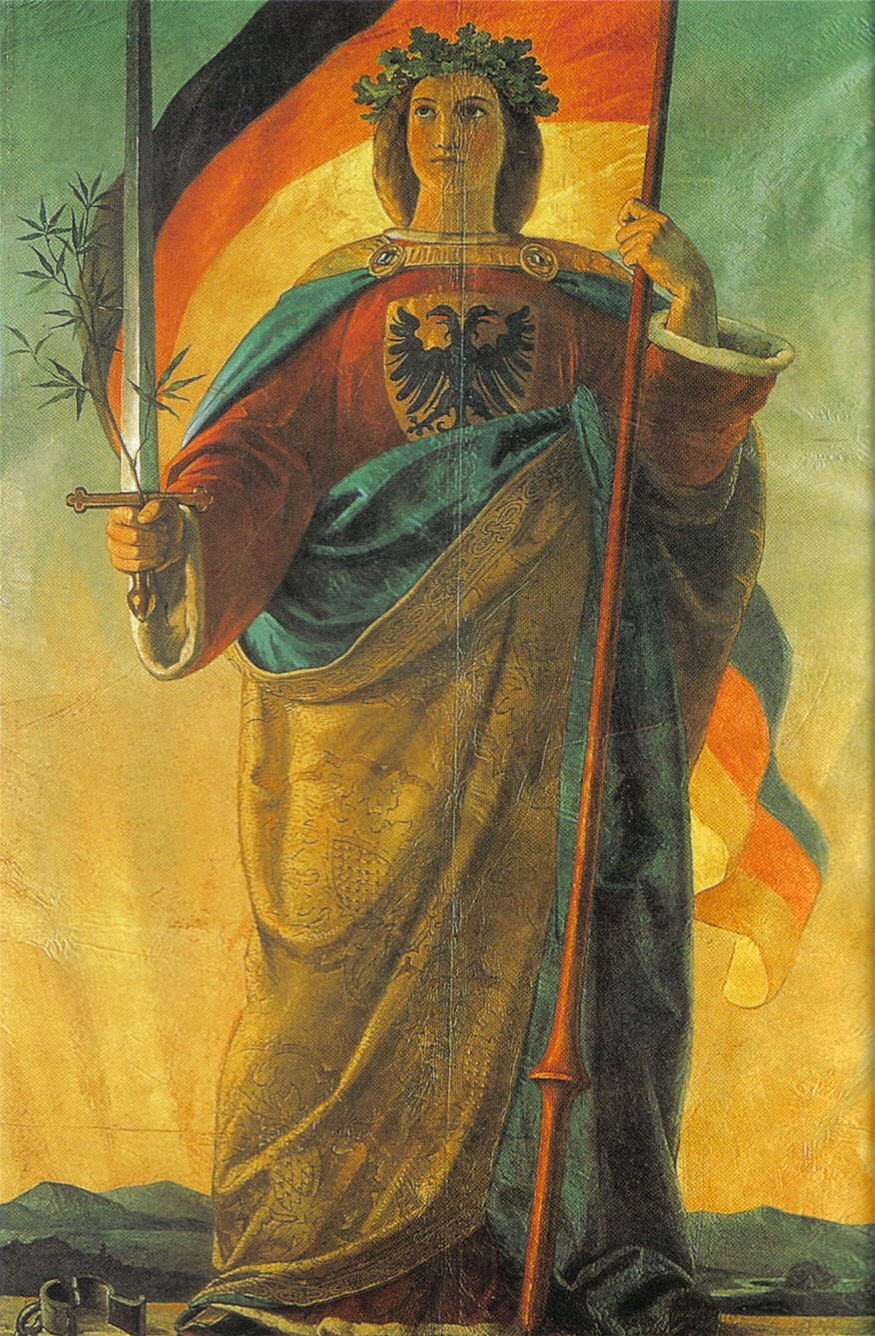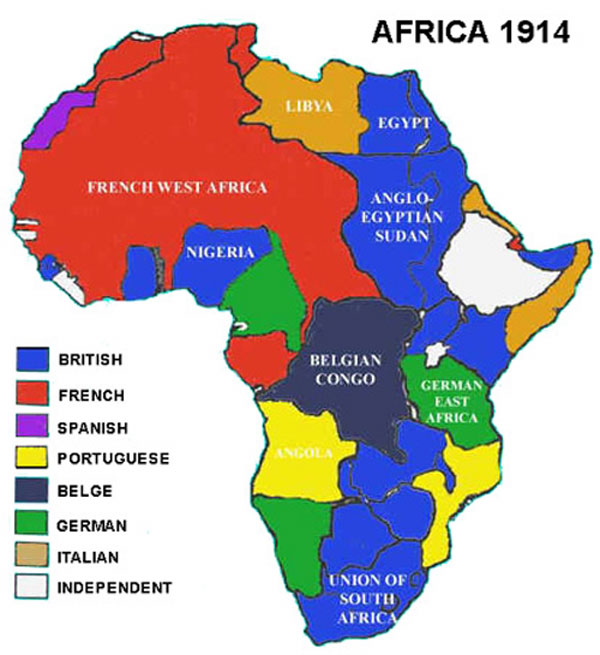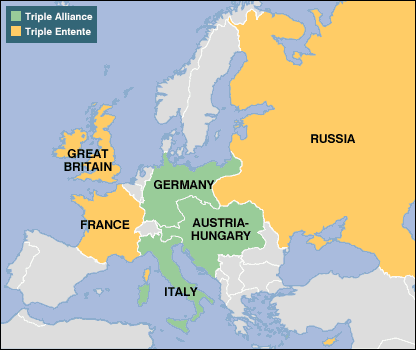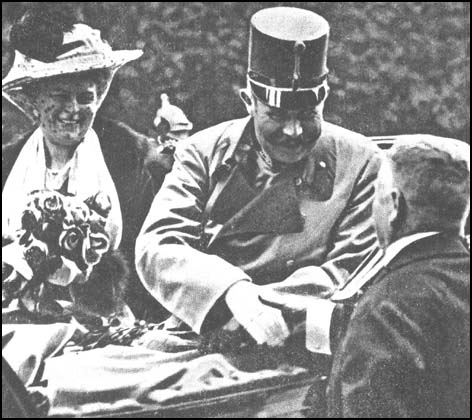On June 28th, 1914 the Archduke of Austria, Francis Ferdinand was assassinated by a Serbian rebel by the name of Gavril Princip while traveling through the capital of Bosnia, Sarajevo. It is undisputed that this was the event that sparked World War I. But alone, the death of one man cannot explain the destruction and carnage that would follow. In truth, the Archduke's death was a spark - a spark that lit decades of explosive fuel. National, militarism, imperialism, and alliances all go a long way toward explain how the death of one man turned into "The Great War."
| Nationalism Nationalism can have a very positive impact on nation by creating a sense of common purpose and belonging. But in can also be a source of conflict when it turns to xenophobia or ethnocentrism. By the early 1900's nationalism of the latter sort had a stranglehold on Europe. This was particularly true in both Germany and France. Germany, now unified, was proud of its growing military and industrial strength. France, meanwhile, wanted to regain its position as a leading European power. It had lost the Franco-Prussian War in 1871. Besides having to pay money to Germany, France lost the provinces of Alsace and Lorraine. Many of the French people wanted revenge on Germany On the opposite side of the continent, Russia had encouraged a form of nationalism in Eastern Europe called Pan-Slavism. the movement tried to draw together all Slavic peoples. Russia was the largest Slavic country, and it was ready to defend Serbia, a young slavic nation in the Balkans. Throughout the Balkans, in act, small Slavic populations looked to Russia for leadership in their desire for unity. The multinational empire of Austria-Hungary opposed Slavic national movements. |
 |
| Militarism During the lat 1800's, militarism, the glorification of military power, arose in many nations of Europe. This development led to fear and suspicion as nations became more willing to use military force to attain their national goals. There was an arms race, in which the great powers competed with each other to expand their armies and navies. One of the fiercest rivalries was between Britain and Germany |
 |
| Imperialism and
Economic Rivalry Britain, France, Germany, and other nations competed for colonies and economic power. France and Germany competed especially for colonial gains in Africa. Britain and Germany competed industrially. Germany had industrialized rapidly, and the British felt threatened by this. Because of tehir mutual competion with Germany, Britain and France began to form close ties with each other. |
 |
| Alliance System Increase tensions and suspicions led nation to form alliances. Nations agreed to defend each other in case of attack. By 1914, there were several alliances. The two most important were the Triple Alliance and the Triple Entente. The Triple Alliance consisted of Germany, Austria-Hungary, and Italy. The TripleEntente consisted of Britain, France, and Russia. This meant that if any one member of either alliance came into conflict with a member of the other alliance, virtually all of Europe would be thrown into war. |
 |
| The
Balkan Powder Keg The Ottoman empire's control over the Balkan's had weakened over time. Serbia declared its independence in 1878, hoping to build a Slavic state in alliance with Russia. Serbia wanted control of Bosnia and Herzegovina, two provinces that would give landlocked Serbia an outlet to the Adriatic Sea. These provinces, however, were Ottoman provinces administered by Austria-Hungary, Austria opposed Serbian ambitions, fearing that the same kind of nationalism would spread to its own multinational empire. Also, Austria-Hungary feared Russian expansion. Tensions grew, and in 1912, Serbia and its allies attacked the Ottoman empire. the great European powers were all interested in gaining lands from the crumbling empire. By 1914, the Balkans were known as the "powder keg of Europe." Any small spark was likely to lead to an explosion. That spark of course came from the gun of Gavrilo Princip. |
 |
| Homepage |
The
Causes |
Major Events |
Links |
The Cost | Quiz |
| Lesson Plan |
Introduction |
Technology |
Total War |
The Treaty of Versailles |
Sources |